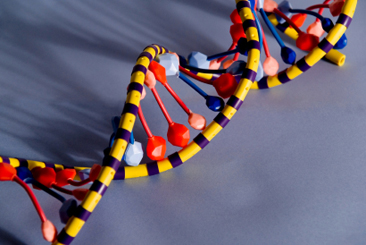|
|
| Offender DNA Collection |
| By Leonard A. Sipes, Jr., CSOSA Office of Legislative, Intergovernmental and Public Affairs |
| Published: 11/26/2012 |
 The federal DNA Analysis Backlog Elimination Act of 2000, signed into law on December 19, 2000, requires the Court Services & Offender Supervision Agency (CSOSA) to collect DNA samples from each offender under the jurisdiction of the Agency on supervised released, parole, probation and who is, or has been, convicted of a qualifying District of Columbia offense.
The federal DNA Analysis Backlog Elimination Act of 2000, signed into law on December 19, 2000, requires the Court Services & Offender Supervision Agency (CSOSA) to collect DNA samples from each offender under the jurisdiction of the Agency on supervised released, parole, probation and who is, or has been, convicted of a qualifying District of Columbia offense.
The D.C. Council in 2001 determined the qualifying District of Columbia offenses. On December 10, 2009, DC Code §22-4151, Qualifying Offenses was amended. The law now makes any felony and any offenses for which the penalty is greater than one year imprisonment a DNA qualifying offense. DNA (deoxyribonucleic acid) is a molecule found in the nuclei of cells that determines our individual characteristics. Drawing blood is the most common method used to collect DNA samples from offenders, although the same DNA is in saliva, organs, semen and hair. DNA isolated from blood, hair, skin cells, or other genetic evidence left at the scene of a crime can be compared with the DNA of a criminal suspect to determine guilt or innocence. Collected samples are subsequently sent to the Federal Bureau of Investigation (FBI) for analysis. The results of this analysis are recorded in the FBI's Combined DNA Index System (CODIS) of the Federal Bureau of Investigation. The permissive uses of such samples or results are specified in the Violent Crime Control and Law Enforcement Act of 1994 (42 United States code 141132(b)(3)). The FBI CODIS blends forensic science and computer technology into an effective tool for solving violent crimes. CODIS enables federal, state, and local crime labs to exchange and compare DNA profiles electronically, thereby linking crimes to each other and to convicted offenders. The Convicted Offender Index contains DNA profiles of individuals convicted of felony sex offenses (and other violent crimes). Following verification of an offender’s DC qualifying offense, and a database review to ensure that the offender has not already had a DNA sample collected, the offender is referred for DNA collection by staff in the Offender Processing Unit (OPU) during intake, or by the Community Supervision Officer (CSO), if the offender is already under supervision. It is the CSO’s responsibility to ensure that the offender is referred to and complies with DNA collection. Upon the offender reporting for DNA collection and positive confirmation of the offender’s identity, the offender’s blood sample is collected by a finger stick by a trained and certified DNA Technician Phlebotomist. The blood collected is placed on the DNA sample card (also known as the FBI Double GeneCard). After obtaining the sample, the DNA Technician signs the FBI form FD-936 and fingerprints the offender’s two index fingers onto the form. The DNA Technician then signs the form and packages the DNA sample card and the completed form FD-936. The DNA Technician then places an evidence seal on the DNA collection kit. Prior to the DNA Technician collecting a DNA sample from another offender, the collection kit for the offender is set aside for mailing to the FBI. CSOSA has initiated a state-of-the art chain of custody for this procedure. If an offender does not comply with CSOSA’s direction for DNA collection, he or she may be convicted of a Class A federal misdemeanor, which is punishable by a fine of up to $100,000 and/or imprisonment for up to one year. Click here for the CSOSA FACT SHEET Submitted by: Leonard A. Sipes, Jr. Other articles by Leonard Sipes Senior Public Affairs Specialist/Social Media Manager Court Services and Offender Supervision Agency (a federal, executive branch agency) 633 Indiana Ave. NW, Washington, D.C. 20004 |
Comments:
Login to let us know what you think
MARKETPLACE search vendors | advanced search

IN CASE YOU MISSED IT
|


Hamilton loves books about unicorns, storms, and cubicles. He lives in Waco with his cat named Mr. Bojangles. Before his work as an attorney, Hamilton was a leprechaun chaser. His all-time record is three pots of gold at the end of the rainbow. He was forced to give up the gold in a dispute with a rival hobbit. He spends his free time tripping out on the smallest details, none of which are important He likes doing the things with the ball and scoring the points. He pays attention to the green of your eyes, even when it is not Saint Patrick’s Day. He is not Irish. Hamilton Lindley has fun plans for people in need. Whether your need a dreamcatcher for your dreams or a tape dispenser to put your life back together, he can be there for you to yell at. There are times when it is surprising that he has any friends at all. But thankfully he does have a few. He drives a Dodge Stratus. People respect him, except at home.
Collecting DNA as specified by certified personel was a prerequisite to avoid any inappropriate collecting of DNA samples that might be contested later during investigations or during trials. Second it will help prosecutors,judges and polices forces to crossexamine faster and found culprit faster because some offenders might already be in the DNA database. Mr.Stephane luako Lombo Kinshasa DRCONGO